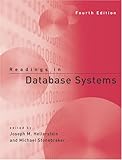To simplify, the SQL data model exquisitely balances:
* expressivity - queries involving both GROUP BYs and subqueries, which I've needed more than once, are challenging at best to translate into Mongo's query model, which is one of the most expressive outside SQL
* speed - as long as your query can run on a single machine, SQL query planners are the best, period. Other models tend to be more horizontally scalable, but this was not a priority for most of database history, nor for most real-world situations.
* compactness - the on-disk overhead of a SQL database is fairly limited, about 40-50% in practice. Obviously, a flat file has even less overhead (<10%, generally), but some non-SQL systems consume storage willy-nilly (it's not uncommon to see XML overheads surpass 500%, and Mongo overhead hovers around 90-100%).
* robustness - in the SQL standard, "undefined behavior" is kept to an absolute minimum. In particular, transactions are invaluable anti-Heisenbugs, but cascading rules, sanity constraints, and fixed schemas also reduce production gotchas (at the cost of development agility, of course).
Doesn't seem to be selling like Harry Potter. ...and must be considered a text book, since Amz is only allowing 10% off the $60 cover price.

